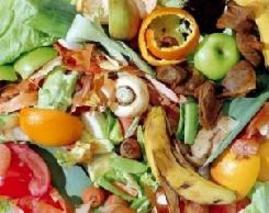Plan to make animal feed from leftovers
 0 Comment(s)
0 Comment(s) Print
Print E-mail
Shanghai Daily, October 18, 2011
E-mail
Shanghai Daily, October 18, 2011
Food waste from kitchens and restaurants may soon be legally used to produce animal feed and fertilizers in Shanghai, legislators said yesterday.
 |
|
Produce animal feed and fertilizers by food water would increase the number of outlets for city waste and contribute to reducing environmental pollution from garbage burning.?[File photo] |
This would increase the number of outlets for city waste and contribute to reducing environmental pollution from garbage burning.
How to process food leftovers has long vexed the city as it seeks to promote more efficient trash treatments.
Burning oily food residues increases the likelihood of toxic emissions, according to experts.
And wet waste is heavy, impacting on transport and treatment stages.
In some countries, food residue is legally recycled into animal feed and fertilizers, said officials with the greenery bureau.
This has not been approved by the state authorities in China, but a trial is under way in the city's Minhang District, officials said.
They added that national authorities were now considering opening up the market and have extended the trial to 32 other cities.
Local legislators would provide detailed regulations as soon as a plan was approved by the state authorities, officials said.
Meanwhile, Lu Yuexing, deputy director with the city's greenery bureau, said yesterday that local authorities would carry out more stringent supervision of waste oil produced by restaurant kitchens.
All registered restaurants will be covered by a kitchen oil monitoring program in the near future, said Lu.
The city government has already increased punishments to crack down on recyclers who pay restaurants, collect waste oil from drains and sell it to illegal oil producers.
Some 25 workshops making "swill oil" have been shut down since August.
Officials said leftover oil from restaurant kitchens would now be closely monitored and treated separately from other food residues.
Go to Forum >>0 Comment(s)
 Add your comments...
Add your comments...
- User Name Required
- Your Comment
- Racist, abusive and off-topic comments may be removed by the moderator.





